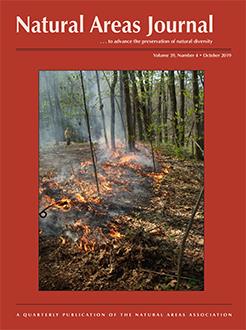Restoration is a critical component of grassland conservation worldwide, but grassland management requires disturbances that maintain the habitat. Further, successful restorations need to support not just a vegetative community, but also a diverse community of other organisms that contribute to a range of ecosystem functions. Large herbivore grazers like American bison (Bison bison) can be an important part of these management strategies, but their role in functions like nutrient cycling relies in part on dung beetles (Scarabaeidae: Scarabaeinae and Aphodiinae, and Geotrupidae), which provide valuable ecosystem services by removing and burying dung. We evaluated dung beetle community responses and dung decomposition in restored and remnant prairies shortly (1.5 y) after bison reintroduction. Dung beetle abundance was significantly greater where bison were present, where prescribed fire had been applied in the past year, and in older restorations and remnants. These same environmental characteristics also shifted the composition of beetle communities, but not total community biomass, as the increased abundance was driven by small-bodied species. Dung decomposition varied with bison presence and site age, with the highest rates of decomposition in an old restoration with bison present. These results indicate that dung beetle communities are capable of rapidly responding to bison introduction, a promising sign that land managers may be able reestablish ecosystem-level processes driven by large grazers in restored grasslands.
BioOne.org will be down briefly for maintenance on 14 May 2025 between 18:00-22:00 Pacific Time US. We apologize for any inconvenience.
How to translate text using browser tools
22 November 2019
Initial Responses of Dung Beetle Communities to Bison Reintroduction in Restored and Remnant Tallgrass Prairie
Nicholas A. Barber,
Sheryl C. Hosler,
Peyton Whiston,
Holly P. Jones
ACCESS THE FULL ARTICLE

Natural Areas Journal
Vol. 39 • No. 4
September 2019
Vol. 39 • No. 4
September 2019
ecosystem restoration
ecosystem service
grazer
prescribed fire
Scarabaeidae
tallgrass prairie




